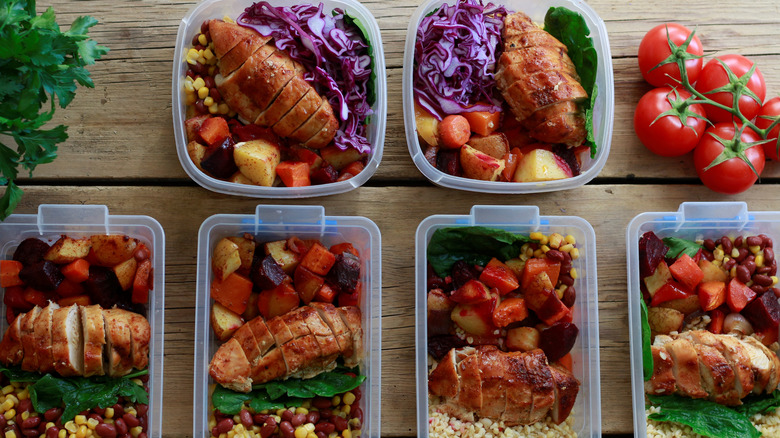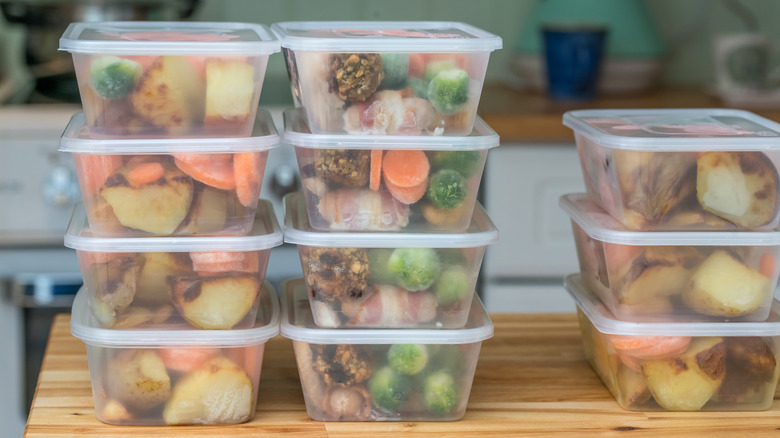How Far Ahead Of Time Is It Safe To Meal Prep?
Meal prepping is a great way to save time in the kitchen, eat healthier, minimize waste, and save money. Spend a day batch cooking, batch prepping, or making a bunch of individual meals ahead of time, and you're guaranteed to eat well with minimal effort later in the week. All you need to do is grab those overnight oats, assemble that salad, or reheat that meatloaf and you're good to go.
A part of meal prepping is planning out your meals, including portions, which raises the question of just how far ahead of time you should meal prep. Will that food that you make last you through the week? Putting aside the issue of whether you want to eat the same meals so many times in a row, from a safety point of view, no, you should not meal prep an entire week ahead of time if you're storing everything in the fridge. As a general rule of thumb, cooked foods stored in the fridge are only safe to eat for around four days, according to the USDA.
The actual timeframe can vary somewhat
According to a USDA specialist (via Today), after around four days is when bacteria, mold, fungi, and yeast can start spoiling food, though the actual timeframe depends on a variety of factors. For example, citric acid sauces help preserve food for longer. Keeping your fridge at 30 degrees Fahrenheit instead of 40 degrees Fahrenheit could also add another day or two to the shelf life of some foods. What ingredients you use will also affect the timeframe — while cooked pasta has a shelf life of up to five days, rice and quinoa are usually good for another day or so. Use an airtight container to keep food at their freshest, and don't try to stuff too much into your fridge, as that can affect the overall temperature.
If you want to have meals for the entire week, you should plan on two separate days of prep a week, recommends Insider. You can also freeze a portion of your prepped meals, and defrost them in the fridge the night before you need them. Different foods last for different lengths of time in the freezer, as per the FDA guidelines, but if you're planning to consume them within a week or two, you shouldn't have any problems. Just remember that not everything freezes well, and factor that into your meal prep planning accordingly.

